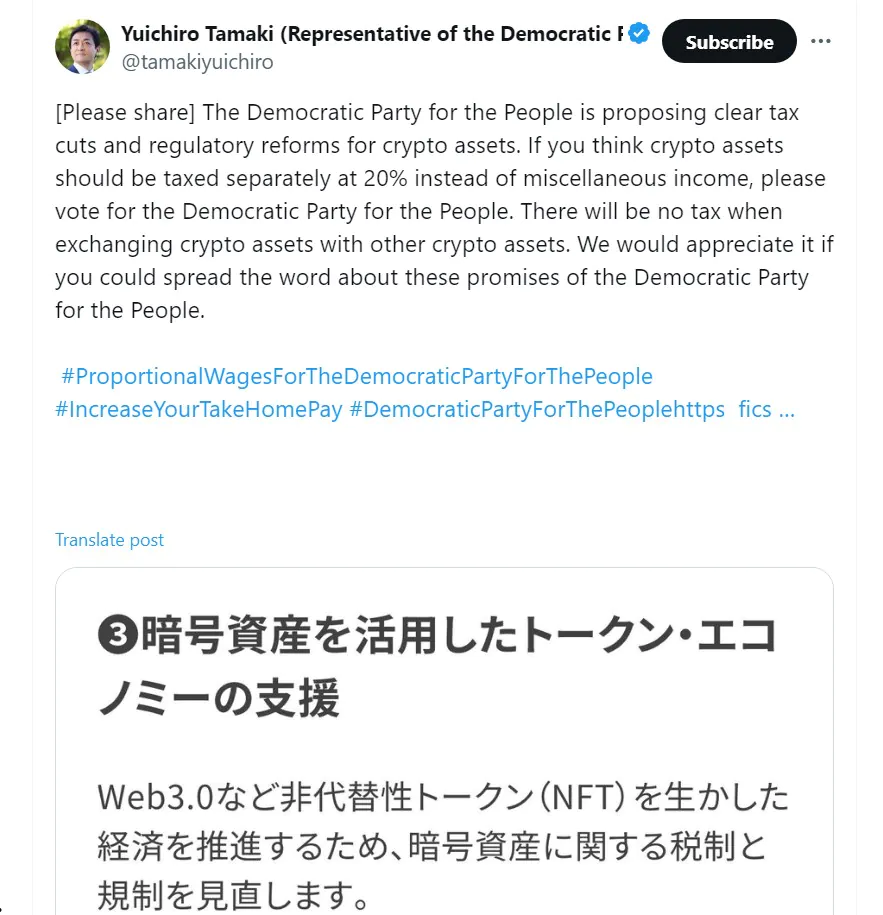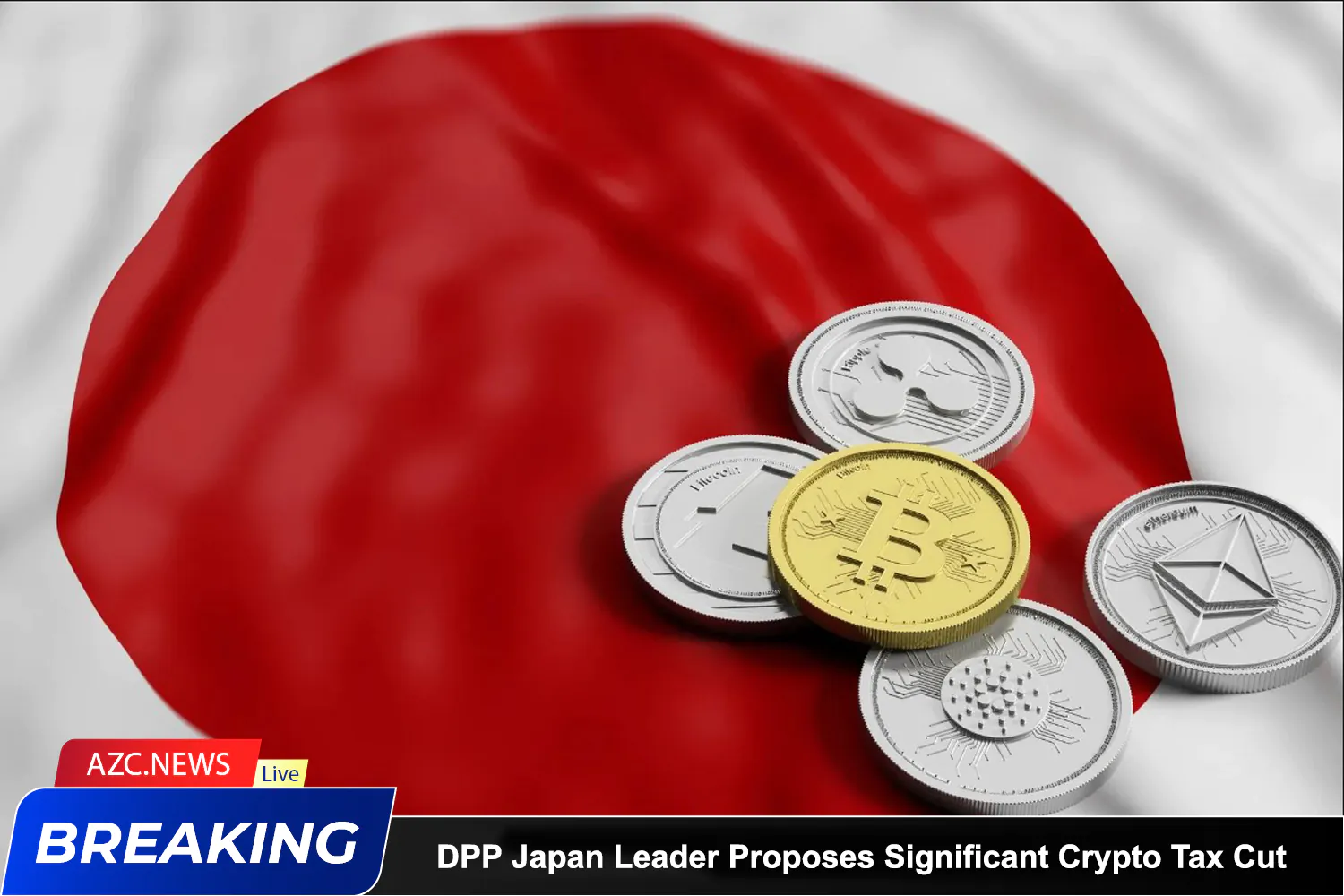Yuichiro Tamaki, leader of Japan’s Democratic Party for the People (DPP), has proposed a plan to reduce the tax on cryptocurrency income to 20% in his platform for the upcoming general election. “If you think cryptocurrency should be taxed at a flat rate of 20%, rather than being treated as other income, vote for the Democratic Party for the People. We also propose tax exemptions for transactions between cryptocurrencies,” Tamaki wrote on X on Sunday.
In the policy statement, the party proposed a separate self-reporting tax of 20% and tax exemptions for crypto transactions. They also proposed increasing the leverage limit from 2x to 10x and introducing crypto exchange-traded funds (ETFs). Tamaki also stressed in a July post on X that Japan should “aim to become a leading crypto nation through regulatory and tax reforms.”

“With the leverage ratio for individual investors capped at 2x, the market is no longer attractive enough for speculators,” said Daiki Moriyama, director of Oasys, a blockchain-based gaming company based in Japan and Singapore.
Japan to tax up to 55% on cryptocurrency profits
Currently, Japan imposes a 55% tax on profits from cryptocurrencies, as cryptocurrencies are classified as other income. In December, the government approved a tax system amendment that exempts companies with unrealized profits from cryptocurrencies if they hold the assets for the long term.
“The trading volume of cryptocurrencies in Japan remains very low,” Moriyama said. “As a result, Japanese cryptocurrency exchanges, which rely heavily on transaction fees as their main source of income, are having difficulty making a profit.”
Read more: Bitcoin Holds at $67,200 Amid Highest Demand in 4 Months
Tamaki’s crypto tax reform ambitions may be a long way off. The DPP currently holds just seven seats in the House of Representatives, and Japan is scheduled to hold a general election on October 27 to fill 465 seats in the lower house.
A survey by major newspaper Asahi Shimbun found that in constituency areas, the DPP could double its pre-election seat count from four to eight. In the proportional representation category, the DPP could also increase its number of seats.






